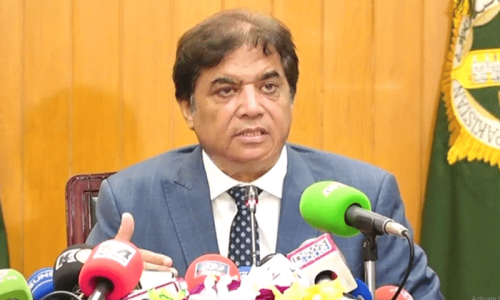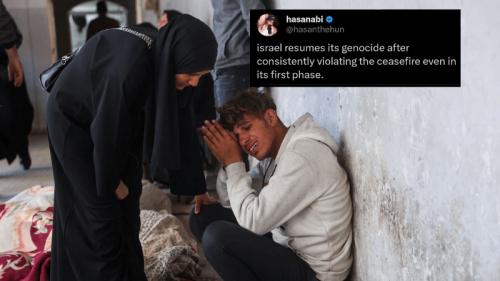THE greatly anticipated Global Health Security Summit, one of the major calendar events on the global health security agenda, gets underway in Islamabad on January 10.
The two-day event draws delegates from over 40 countries and is the personal initiative of the current caretaker Health Minister, Dr Nadeem Jan, who worked hard to bring it to Pakistan since taking over as the third technocrat at the health ministry after Dr Zafar Mirza and Dr Faisal Sultan. This clearly shows that a technocrat with command over the brief can lead from the front on key health challenges facing the country. And herein lie many rays of hope for the health sector.
As a rule of thumb, global health security means the presence and development of robust and resilient public health systems that can help prevent, detect and respond to infectious disease threats. This assumes particular importance in our globalised world, where a disease threat anywhere is a disease threat everywhere. Remember the oft-repeated line during the Covid-19 pandemic: no one is safe until everybody is safe? The Covid pandemic underscored the necessity of global solidarity and working across borders and governments in a whole-of-the-world approach to infectious diseases. In this context, the global health security agenda represents global efforts to strengthen the world’s ability to prevent, detect and respond to infectious disease threats.
Global health security gained policy salience after the Ebola outbreak. It led to the adoption of the Global Health Security Agenda (GHSA) in 2014, with the initial involvement of 40 countries. With more than 70 countries now signing up for the GHSA 2024, it is expanding its footprint and reach to the rest of the globe. The key elements of the GHSA involve developing sustainable financing mechanisms, promoting multisector collaboration, improving information sharing across countries and strengthening the accountability of member states to their country commitments.
While global health security had long been a concern, the Covid pandemic helped a further shift towards it. This was manifested in the interest of the media, the general public and health policy officials in cross-border infections. Not only this, the Covid pandemic also kick-started discussions on the need for pandemic preparedness and response treaties, as well as revision of existing International Health Regulations (IHR). In parallel, the GHSA also acquired its present shape, intersecting and feeding into debates about new pandemic treaties and revisions to the IHR.
Building a resilient public health system is of vital importance.
Pakistan has signed onto GHSA 24, and the National Institute of Health (NIH) has been leading on both GHSA and IHR. GHSA 24 requires member countries to develop leadership and technical knowledge and initiate collaborative efforts to sustain health security in the long term. The GHSA requires countries to show demonstrable progress in health security-related technical areas, as well as complete a joint external evaluation and reach a level of demonstrated capacity in at least five technical areas.
Pakistan participated in a joint external evaluation in 2023. Based on the assessment, an action plan for health security is now being formulated. The summit offers an opportunity to not only review the progress Pakistan has made but also to benefit from the best global practices on show. Pakistan faces many challenges when it comes to infectious diseases. Tuberculosis and anti-microbial diseases remain issues of significant concern. Anti-microbial resistance in Pakistan is mounting, and what has been called a silent pandemic may balloon into a grand pandemic if not collectively addressed.
The work on building up a resilient public health system is of vital importance with respect to the global health security agenda. Yet, there is a long way to go when it comes to strengthening public health systems in Pakistan. The examples of Korea and Japan, where robust public health systems proved crucial in beating back the Covid pandemic, are illustrative in this regard.
Pakistan will obviously be looking to invest more in health systems, especially where laboratory and surveillance capacities are concerned. Funding for pandemic preparedness is also a long-standing issue, which is being negotiated in the new pandemic preparedness treaty. One funding window for pandemic preparedness and response has been opened up by the World Bank. Pakistan needs to be alive to such new funding streams. The global health summit offers an ideal opportunity to seize on these and other emerging opportunities and make use of them. More importantly, political ownership of GHSA is also a must.
The writer, a public health consultant, is the author of Patient Pakistan: Reforming and Fixing Health Care for all in the 21st Century.
X: @arifazad5
Published in Dawn, January 9th, 2024










































